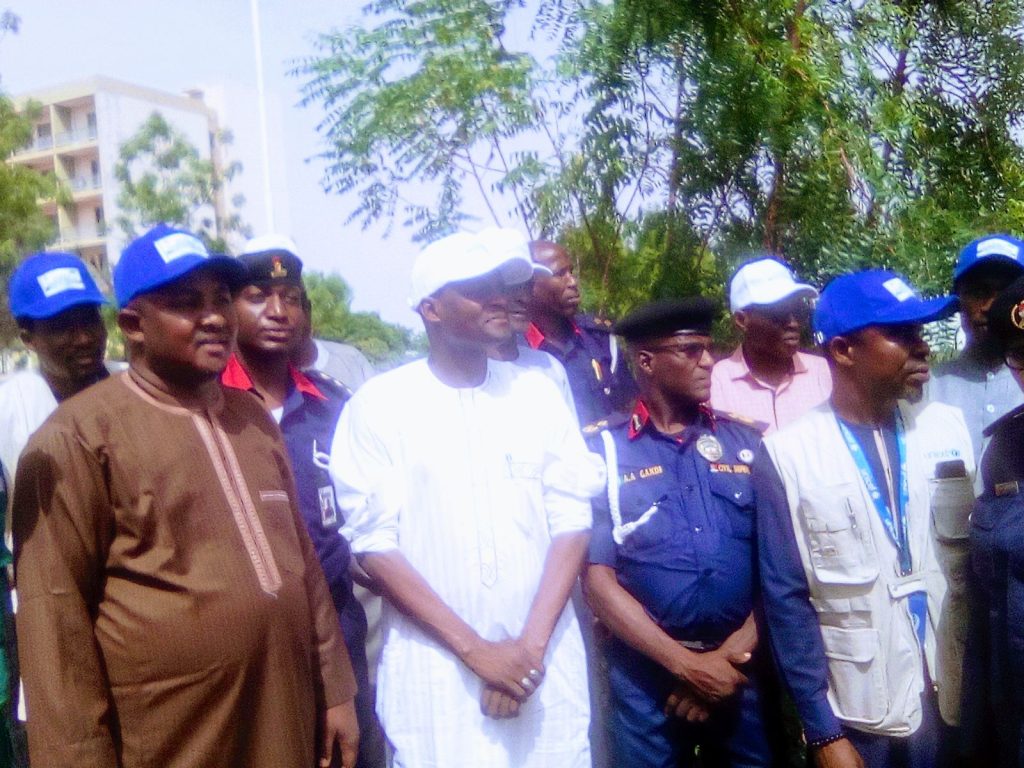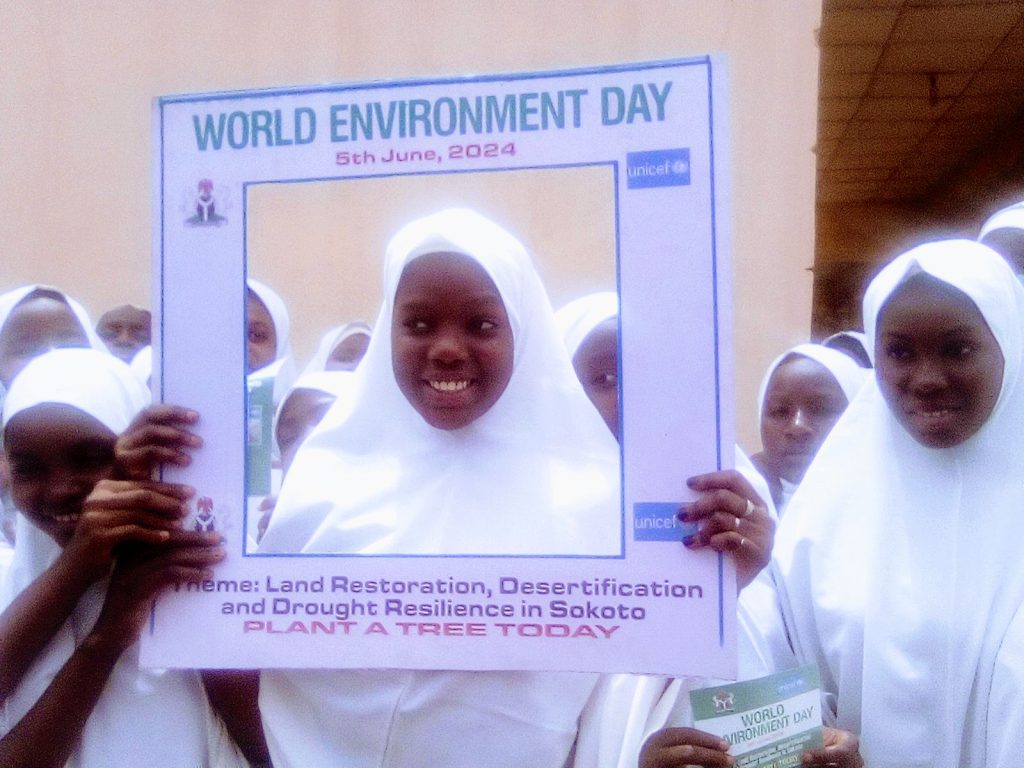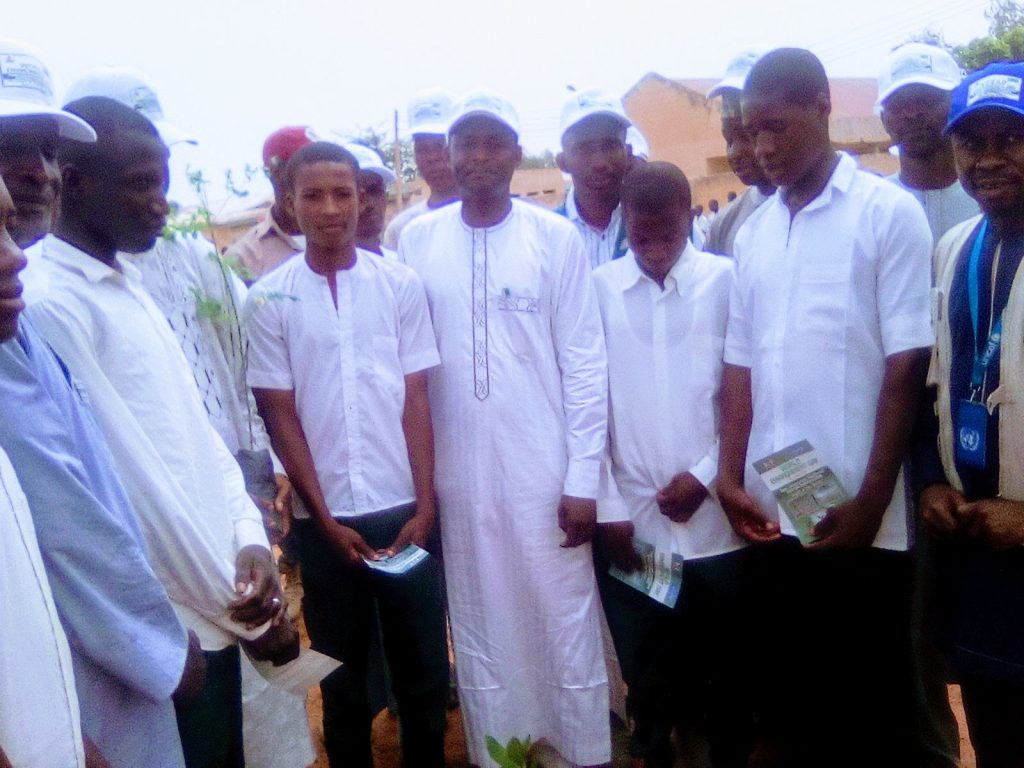ASHENEWS reports that the Sokoto state government has planted hundreds of tree seedlings as part of its activities to commemorate the 2024 World Environment Day.
This is just as UNICEF unveils plans to plant 50,000 schools The state Ministry of Environment planted the seedlings alongside UNICEF while plans are underway to plant plan to plant 100,000 trees before the end of 2024.
The tree seedlings were planted at the state headquarters of the Nigerian Security and Civil Defense and the Sultan Muhammad Maciod Institute in Sokoto State.

Tangaza said that Sokoto state has very few trees which is the reason for the severe weather condition of the state. He said that if there are a lot of trees, there will be adequate water in the river while the underground water levels will be boosted.
The Commissioner further stated that the government has come up with a policy that anyone who cuts down a tree must replace it.
“Without trees, there will be water shortages in our rivers, and underground water levels will drop. This will make it hard for the remaining trees to survive due to the low rainfall we are experiencing.
“The Ministry plans to plant more than 100,000 trees this year. We intend to plant them in schools so students from JSS 1 to SSS 3 can take care of them. For World Environment Day, we choose the NSCDC headquarters because we know they will water the trees daily and take good care of them until they are strong enough to survive on their own.”
The UNICEF Director of Environment, Mr. Ebri Efeng disclosed the plans of UNICEF to plant 50,000 trees in schools across Sokoto State. He said that each of the schools will receive 100 trees, while each student will be responsible for a tree from JSS 1 until they graduate.

“This will teach students to care for trees, making it a lifelong habit. We are giving a tree to each student and putting teachers in charge. We will check on the trees every month to ensure they are well cared for and not wasted.
” We aim to plant 100 trees in each school in 15 to 23 local government areas, though some areas are hard to reach due to bandits.
“UNICEF is ready to help Sokoto State restore trees that have been cut down. I have been in Sokoto for eight to nine years and have never seen such low rainfall. We need trees for our rivers to flow better.”
Mr. Mohammed Dauda from the Geology Department at UDUS said that Sokoto State faces a huge climate change challenge because it lacks trees.
“I often see people cutting down trees without replacing them, and I wonder if they realize the trouble they are causing. We have low rainfall, and they are cutting down the trees that produce oxygen for us.”
Mr Adamu Muhammad from the Ministry of Environment said he is happy that UNICEF partnered with them to improve Sokoto State’s environment. He however lamented that because people see the Ministry of Environment cutting trees, they also embark on cutting trees themselves without any directives.

“I send people to cut down trees that are blocking roads and instruct them to plant new ones in better locations. However, when people see us cutting trees on one side of the road, they start cutting trees on the other side without being asked. When we investigate, we find out no one asked them to do this”, he said.
Dr Abubakar Gummi from the UDUS Plant Science Department noted that Sokoto state is already experiencing the impact of climate change stressing the need for the government to build local capacity for sustainable land and water management.
He emphasized the need for the state government to connect science and policy for better drought management. Gummi noted that global warming is causing more rapid-onset droughts and societies, economies, and ecosystems are at risk.
Other dignitaries at the tree planting ceremony include Mr Mohammed Dauda and Prof. Ibrahim M. Dankani from the UDUS Geology Department, Mr Abdullahi Bello, Director of State Climate Change, the Field Program Assistant at the FAO office in Sokoto, Mr Garba Shuribu Takoki, Mr Chika Sani Torankawa who is the Director of Environmental Health and Pollution Control; Abubakar alongside other stakeholders.


